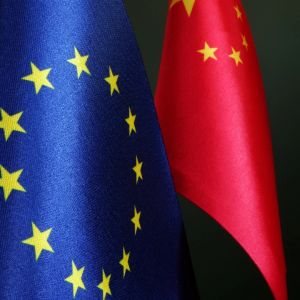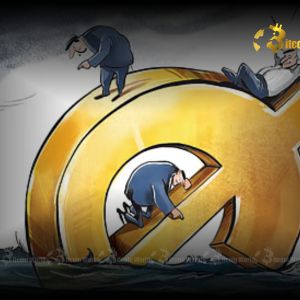As China’s post-pandemic recovery falters and deflationary signals deepen, the People’s Bank of China (PBoC) has begun quietly seeking guidance from European financial institutions on how to navigate a prolonged period of low interest rates. According to reports, China’s central bank made “ad hoc” requests to at least two major European banks earlier this year, asking how their economies managed the impact of near-zero rates on financial systems during the previous decade. “We saw it as a precautionary move,” one European banker familiar with the request said. “You don’t wait until the engine stalls before asking how to restart it.” China’s monetary policy is entering the red zone For the past year, Beijing has steadily trimmed interest rates in hopes of bringing the domestic economy back to life. The benchmark policy rate was cut to 1.4% from 1.8%. The one-year loan prime rate now sits at 3%, down by half a point. Despite Beijing’s efforts, the economy remains unresponsive. Low household spending and businesses not borrowing as much as they should, despite the incentives, and prices have fallen for four straight months, with no relief in sight. The slowdown is not the only cause of headaches for Chinese policymakers, as the threat of deflation lurks. In its latest monetary policy statement, the PBoC acknowledged the uncomfortable truth: the economy faces “insufficient domestic demand, persistent low prices, and various hidden risks.” Perhaps even more telling is what the central bank didn’t say. Gone was the usual talk of bold interventions and aggressive easing. Instead, officials pledged to “implement policy with more flexibility in the intensity and pace.” Beijing wants to learn from Europe’s mistakes and Japan’s What China fears, Europe knows well. After the 2008 financial crisis, the European Central Bank (ECB) came up with monetary policy tactics such as zero and sometimes negative interest rates to cushion the impact of the global crisis on its economy. During that period, growth remained slow and banks struggled to stay profitable. It was a delicate balancing act where the goal was to create inflation without suffocating financial institutions. According to one source , even European asset managers were drawn into the conversation. State-owned Chinese banks and insurers reportedly asked for suggestions on how to invest in a low-rate environment. And then there’s the shadow of Japan. After its real estate bubble burst in the 1990s, Japan entered what economists now call the “lost decades,” a period of economic stagnation and deflation that lasted more than 20 years. The signals allude to the fact that deflation is hard to shake. “It shows they are learning and getting ready,” an economist at a European bank said of the PBoC’s inquiries. Cracks have begun to appear Meanwhile, China’s financial markets are starting to react. Long-term bond yields have dropped sharply over the past year. The 30-year yield now sits at just 1.86%, down from 2.42%. The 10-year yield has dipped to 1.65%. Investors, spooked by weak growth prospects, are piling into safer assets, and pulling yields down with them. That trend has regulators on edge. Some officials have drawn comparisons to the U.S. banking crisis of 2023, when Silicon Valley Bank collapsed under the weight of mismatched interest rate exposures. China’s smaller regional banks, already under pressure, could be vulnerable if the bond market continues its slide. So far, the PBoC still has some breathing room. Rates aren’t at zero yet. But the central bank knows time may be running short. KEY Difference Wire helps crypto brands break through and dominate headlines fast



















